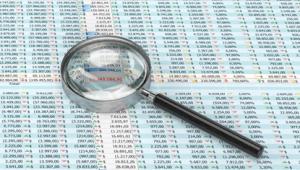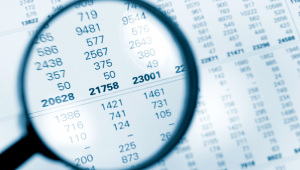The local spending watchdog’s update on collection rates found the amount uncollected in the year was up 6% on previous years, with more than £1.2bn in unpaid in-year council tax and business rate payments, and a further £3.34bn outstanding from previous years.
The national council tax collection rate for 2013/14 was 97%, down by 0.4 percentage points compared to 2012/13. Rates varied from 91.7% up to 99.3% in some authorities.
According to the commission, this is only the second fall in the overall national in-year collection rate since council tax was introduced in 1993/94. Had the previous year’s collection rate been maintained, councils would have collected around an additional £94m.
Despite this, the total amount of tax collected in 2013/14 still increased by 2.7% in real terms compared with the previous year. The commission said this could be because people were being asked to pay more under local council tax support schemes, as well as increases in the amount of council tax charged for empty and second homes.
By contrast, the national collection rate for business rates improved from 97.7% in 2012/13 to 97.9% in 2013/14. The slight increase meant that councils collected £47m more than they would have at the previous year’s rate.
The commission noted that this was the first year that local authorities retained half of business rate growth, which was likely to have incentivised town halls to improve collection rates and generate more business rates income.
Setting out the report’s conclusions, Audit Commission chair Jeremy Newman highlighted that around one third of councils’ income comes from council tax and business rates.
‘While collection rates are high, at 97.0% and 97.9% for council tax and business rates respectively, when we consider such large sums of taxpayers’ money, even a small percentage shift can produce substantial changes in the income councils have to deliver their services.
‘With £4.55bn uncollected and individual councils’ tax arrears ranging from £11.1m to £105.2m, there has to be room for improvement for many councils.’
Responding to the figures, local government minister Kris Hopkins said improving tax collection rates and reducing arrears were key to keeping council tax down overall and protecting frontline services.
‘Every penny of tax that is not collected means a higher tax bill for the law-abiding citizen who does pay on time,’ he said.
He urged councils operating local support schemes to be ‘sympathetic to those in genuine hardship’, including proportionate use of bailiffs.
‘However, there is a significant potential source of income which councils across the country could use to support frontline service or freeze council tax bills next year,’ he added.
The Local Government Association said the figures confirmed that council tax and business rates had among the highest collection rates of any tax.
‘The slight increase in unpaid council tax will come as little surprise to those in local government, who warned that this would be a consequence of government cutting funding for council tax support,’ LGA chair David Sparks said.
‘This cut has left local authorities with little option but to reduce discounts for people on low incomes, some of whom have found it a struggle to pay.’





















